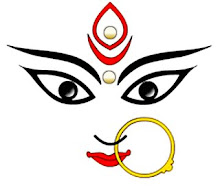

Palani near Madurai enshrines Dhandayutapani in a hill temple. At the foot of the hill is Tiru Aavinankudi. Both these temples are visited by thousands throughout the year.
Lord Murugan is the deity of the Tamil Land. Palani (Tiru Avinankudi) is the third Padai Veedu. The temple at Palani is an ancient one. It is on an elevation of 1500 feet above sea level. The deity is called Dandayudhapani Swami, the Lord having the staff in his hand. The deity at the sanctum sanctorum is made out of an amalgam of nine minerals popularly called Navabashana. The deity is in a standing position with a baton in his hand. He has the look of a person who has renounced all worldly pomp. He has just a loincloth besides the baton. He is a mute messenger of the great precept 'Renounce all to reach Me'. The icon is unique in the whole world. It was made by Siddha Bhogar by combining nine poisonous substances (navabashana). Murugan signifies beauty and Lord Murugan of Kurinji land is the god of Beauty and Youth.
The Legendary, Historical and Spiritual Significance of the Hill Temple
There is a legend how Lord Murugan came to this sacred spot. Narada Muni, a sage, brought a golden mango to the divine court of Lord Siva when Lord Siva was seated with his consort Parvati and His children Lord Vinayakar and Lord Subrahmanya. Narada gave the fruit to Lord Siva and implored Him to eat since it was a rare, miraculous Jñanapalam, the fruit of wisdom. As a loving husband, Lord Siva gave it to Parvati and requested her to eat. As a loving mother, she wanted to give the fruit to her children. As there was only one fruit and it should not be cut, they announced a contest and said that the winner would be given the fruit. Whoever completes one round of the globe first will be given the fruit.
Lord Subrahmanya mounted His peacock to go around the world. Lord Vinayakar circumambulated around His parents, symbolising the world, and got the fruit. On return, Lord Subrahmanya found that He was cheated. In anger, He renounced His family and came to this spot to settle forever. Lord Siva and Parvati came to pacify Him. They said, "Pazham Nee" ('You are the Fruit'). Hence the name Palani is a popular syncopation of the two words mentioned.
The presiding deity, Lord Dandayudhapani Swami, is the son of Lord Siva and son-in-law of Vishnu. He has other names such as Kulandaivelan, Balasubrahmanyan, Shanmukhan, Devasenapati, Swaminathan, Vallimanalan, Devayanaimanalan, Palaniandavar, Kuriñjiandavar, Arumugan, Jñana Pandita, Saravanan, Sevar Kodiyon, etc. Tamils, Keralites, Bengalis, Sri Lankans, Malaysians, Fijians, Africans, Australians and Americans to name a few come here to worship Lord Muruga. Thus Murugan worship cuts across provincial boundaries and national frontiers.
Cheaman Perumal, a ruler of Kerala, built the main temple perhaps in the 7th Century AD. The Nayaks built the Navaranga Mandapam which is a fascinating stone structure incorporated by four pillars and endowed with nine bays. The other portions of the temple have been built by the Pandiya kings, besides a number of local heads, religious groups and individual devotees.
This temple is refered to in the Tamil work Thirumurugatruppadai of Nakeerar of the Sangam age (pre Christian era). Arunagirinaathar, the saint poet has composed 95 verses on Palani in his Thirupugazh. The Palani malai hill temple and the Thiruvavinankudi temple at the foot hills form a composite unit. The Thiruvavinankudi temple is refered to as Kuzhandhaivelayudar temple and the Saravanpoigai tank is located near it.
FESTIVALS:
Daily Worship: Seven worship services are carried out each day here. The day commences with the Viswaroopa darisanam in the morning. The concluding worhsip service involves a procession of the deity in a golden palanquin in the temple and the palliyarai sevai.
Panguni Uttram is celebrated for 10 days as the annual Bhramotsavam. This festival is celebrated only at Tiruvavinankudi in the foothills to Muthukumarar the festival deity here.The Ther Thiruvizha is held on the last day of this festival. Offerings of Kaveri water brought from Kodumudi by thousands of devotees in kaavadis are made to the deity.
Agni Nakshathram is celebrated in the month of Chittirai and Vaikaasi. During this time, thousands of pilgrims circumambulate the hill. Vaikaasi Visaakam is celebrated for 10 days.
Skanda sashti is celebrated for 7 days. Soorasamharam is enacted on the last day of this festival in which both Chinna Kumarar the festival image of the hill temple and Muthukumaraswami of Thiruvavinankudu participate.
Kaartikai Deepam is celebrated for 10 days. In addition Kaartikai asterism in each month is celebrated with a procession of a golden chariot in the hill temple. Thai poosam is also celebrated for 10 days here.
Travel Base: Madurai.





No comments:
Post a Comment